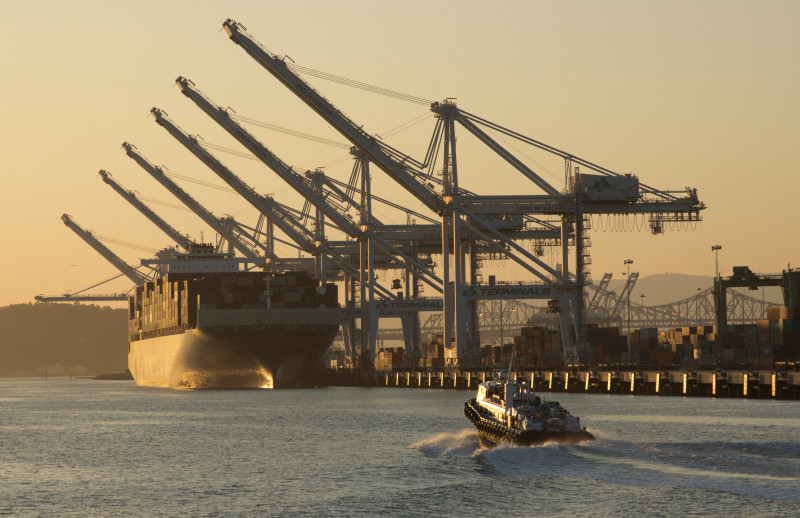From the East Bay Times account of the meeting:
"Poor outcomes of health occur when there is a lack of jobs, increased crime, poorer education, low income and lack of transportation," said Dr. H. Geoffrey Watson, "We're dying more than anyone else."
Watson runs a community health clinic in northwest Oakland. His position was echoed by some faith leaders in the city, as reported by the San Francisco Chronicle:
“If a person doesn’t have a job, it’s going to affect their health — they can’t get the right kind of medical (care) they need for their families,” said Pastor Kevin Barnes of Abyssinian Missionary Baptist Church.
But ministers, physicians and labor representatives also turned out to support the ban. In fact, the city-commissioned report released last week suggested that future coal workers from West Oakland, a community that has suffered severe health impacts from its proximity to sources of pollution like freeways, rail lines and the city's busy port, would be at particularly high risk.
Susan Stephenson, executive director of California Interfaith Power and Light, a group organized to address climate change, told the council that its 40 or so congregations in the city "are united in opposition to bringing coal into Oakland for export."
Derrick Muhammad, from International Longshore and Warehouse Union Local 10, called the proposal to ship coal from West Oakland "the equivalent of leading us into Jonestown, making us drink Kool-Aid laced with cyanide, brothers. It might sound good. It might look good. But it's a trick."
Terminal Logistics Solutions, the firm in charge of building the new bulk cargo facility, has promised state-of-the-art systems, including covered rail cars, enclosed conveyors and sealed domes, that would prevent the release of coal dust into the surrounding community.
Skeptics have pointed out that some of those proposed measures -- covered coal cars -- do not yet exist. Others have said there's simply no way of mitigating the dangers posed by coal shipment.
"Coal dust and coal itself have hazards that cannot be eliminated, because of the particles, because of the explosions and because of the fire," Amy Kyle, a research scientist at UC Berkeley's School of Public Health, told Monday night's meeting. "Secondly, the operations at this facility will generate dust in a lot of locations, and there doesn’t seem to be any demonstrated way that all of this can be contained."
The council also heard a warning from Gregory McConnell, an Oakland attorney and lobbyist representing the new terminal, that the city could expect legal action if it passed the coal ban.
“This is not going to end tonight,” he said.
Council members were unswayed. Again, from the East Bay Times:
Councilmember Noel Gallo said it was incumbent upon the council to protect residents' health and Councilmember Abel Guillen called the tradeoff between jobs and the environment a "false choice."
"It's not just about making a dollar," Gallo said. "It's also about social responsibility."
All seven council members present at the meeting voted for the ban. East Oakland Councilwoman Desley Brooks was absent.
KQED's Sandhya Dirks contributed to this post.
